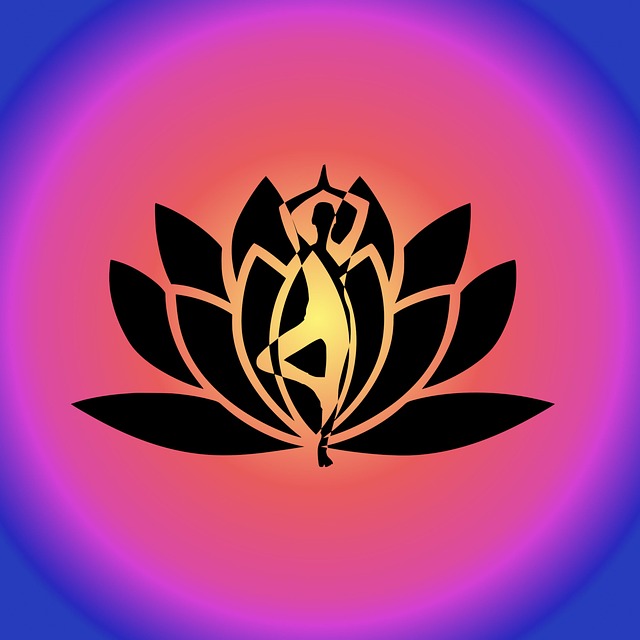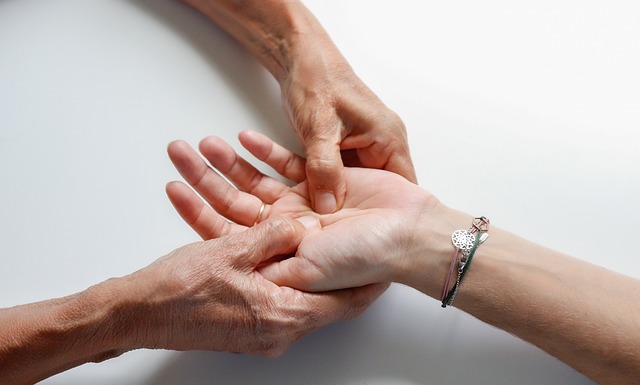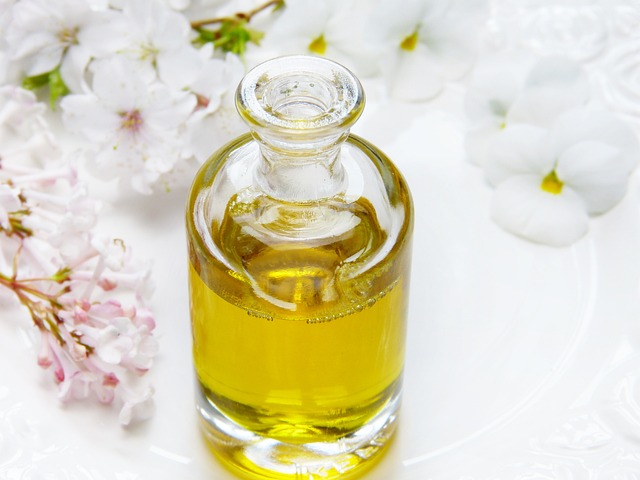In today's fast-paced world, managing stress and anxiety is key to overall wellness. Holistic approaches like mindfulness techniques (e.g., deep breathing), yoga exercises, and meditation practices offer effective solutions. Regularly incorporating healthy eating, physical activity, gratitude journaling, and self-care routines helps manage stress, promotes resilience, and fosters a positive mindset. These wellness practices, combined with awareness of personal triggers, create a comprehensive framework for promoting mental and physical health.
In today’s fast-paced world, stress and anxiety have become ubiquitous companions. Understanding these conditions is the first step towards managing them effectively. This article explores comprehensive wellness practices designed to alleviate stress and anxiety, focusing on mindfulness techniques, yoga exercises, meditation practices, gratitude journaling, and self-care routines. Additionally, it delves into evidence-based stress management strategies, including healthy eating habits and regular physical activity, emphasizing the power of deep breathing exercises in promoting mental well-being.
- Understanding Stress and Anxiety: The Need for Effective Management
- – Definition of stress and anxiety
- – Impact on mental and physical health
- – Identifying triggers and sources
Understanding Stress and Anxiety: The Need for Effective Management

Stress and anxiety are prevalent modern-day challenges that can significantly impact our overall wellness practices. They often arise from various factors, including work pressures, personal relationships, financial concerns, or even everyday life’s demands. When left unmanaged, these feelings can lead to more severe issues affecting mental and physical health. This is where the integration of effective stress management strategies becomes vital for maintaining a balanced lifestyle.
Many holistic approaches, such as mindfulness techniques, yoga exercises, and meditation practices, offer powerful tools to combat stress and anxiety. For instance, deep breathing exercises have been shown to activate the body’s relaxation response, calming the mind and reducing tension. Additionally, incorporating healthy eating habits, regular physical activity, gratitude journaling, and self-care routines into daily life can further enhance one’s ability to manage stress effectively. These wellness practices not only provide a sense of control but also foster a deeper connection with oneself, enabling individuals to navigate life’s challenges with greater resilience.
– Definition of stress and anxiety

Stress and anxiety are prevalent modern-day challenges that can significantly impact overall wellness. These conditions often arise from various factors, including demanding lifestyles, work pressures, financial worries, or personal relationships. While they are natural responses to life’s demands, prolonged or intense stress and anxiety can lead to various physical and mental health issues.
To combat these feelings, incorporating wellness practices such as mindfulness techniques, yoga exercises, and meditation practices into daily routines can be immensely beneficial. These activities encourage a sense of calm and promote healthy coping mechanisms. For instance, deep breathing exercises, when practiced regularly, can reduce stress hormones and lower blood pressure. Additionally, gratitude journaling and self-care routines can foster a positive mindset and enhance overall well-being, acting as powerful tools in managing stress and anxiety effectively.
– Impact on mental and physical health

Breathing exercises are powerful wellness practices that can significantly impact both mental and physical health. They act as essential mindfulness techniques, helping to calm the mind and soothe the body, which is crucial for stress management strategies. Regular deep breathing exercises, often incorporated into yoga exercises and meditation practices, have been shown to reduce anxiety, lower blood pressure, and boost overall well-being. By focusing on the breath, individuals can develop a stronger connection with their bodies, leading to improved self-awareness and emotional regulation.
Incorporating these mindfulness techniques into daily routines, alongside healthy eating habits and regular physical activity, creates a holistic approach to stress reduction. Practices like gratitude journaling and self-care routines further enhance mental resilience and promote a sense of inner peace. The benefits extend beyond the moment; consistent engagement in such wellness practices can lead to long-term improvements in managing stress and anxiety, fostering a healthier and more balanced lifestyle.
– Identifying triggers and sources

Identifying triggers and sources of stress is a vital first step in any wellness practice. Mindfulness techniques, such as yoga exercises and meditation practices, can help individuals become more aware of their thoughts and emotions, allowing them to recognize patterns that contribute to anxiety. By integrating these mindfulness techniques into daily routines, individuals can learn to navigate stressful situations with greater ease.
In addition to mindfulness, other stress management strategies like healthy eating habits, regular physical activity, and deep breathing exercises play a significant role in maintaining mental balance. Engaging in activities that promote relaxation and cultivating gratitude through journaling or adopting self-care routines can further enhance one’s ability to manage stress effectively. These holistic approaches, when combined with awareness of personal triggers, create a comprehensive framework for promoting overall wellness and reducing anxiety.
Breathing exercises, coupled with mindfulness techniques like yoga and meditation practices, are powerful tools in one’s wellness arsenal. By integrating these simple yet effective stress management strategies into daily routines, individuals can significantly reduce anxiety levels and improve overall mental well-being. In conjunction with healthy eating habits, regular physical activity, and gratitude journaling, deep breathing exercises form a holistic self-care routine essential for navigating life’s challenges. Embracing these wellness practices allows us to cultivate resilience, enhance our quality of life, and find moments of tranquility amidst the chaos.
